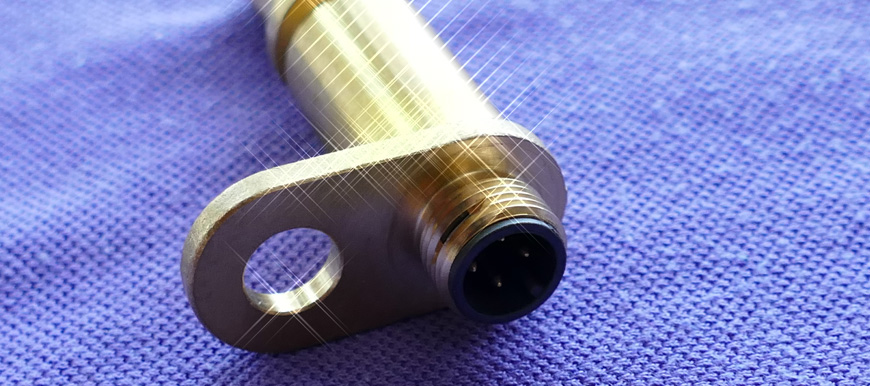Squaring the circle - Custom-specific solutions for every application

Simple question, simple answer: A customer-specific solution is needed! Unfortunately, however, it is also the case in everyday project work that the simple answers are rarely the best answers in the long term, taking all aspects into account.
Depending on the scope and type of customisation deemed necessary, minimum economic quantities can easily exceed the quantities required by the typical industrial RHEINTACHO clientele. Wolfgang Sexauer, Head of Sales & Marketing: "We operate in a very demanding industrial environment. Our customers mostly not need automotive or B2C-like quantities. They value the perfect balance of high quality, cost efficiency and ensuring a long product life cycle."
What is the solution? Already in the analysis phase of a project, RHEINTACHO differentiates between application-specific requirements that are assessed as reasonable across various customers and whose individual modification would also be costly. Complex in terms of changes, geometry, electronic layout, etc. But also, with regard to qualification and validation measures. And even customer-specific characteristics. An example of this is certainly the connection interface. An intelligent design is also characterised by the fact that customised individualisations can be implemented with the least possible effort and, in the best case, remain commercially attractive even with smaller batch sizes. Solutions can only be optimal if they meet the requirements exactly. This requires good market and application knowledge, combined with the ability to listen, and engage in dialogue.
Jörn Strasser, senior industry manager, is responsible for some important partners in the measurement technology sector: "In digital hand tachometers and stroboscopes, RHEINTACHO is a real hidden champion and Europe's largest manufacturer - and we also feel very comfortable in this position."
In contrast to sensor technology, the differentiations in the field of measurement technology are mostly marketing-driven implementations of corporate design languages and rarely functional differences. In terms of effort, this makes no difference - quite the opposite. In the case of speed sensors, the decision for or against a customised solution is an emotionless, cost-motivated matter: customisation usually simply offers advantages that can also be evaluated. Be it through a company-wide standardisation of connectors. Or a uniform signal interface and the associated uniform controls across all products. If customisation is too costly, a compromise becomes more attractive. However, this solution is then precisely a compromise. In the case of service, this can be exactly the situation in which the service employee in the field is "surprised" by a plug. Surprised because a component that has already been installed many times does not communicate correctly with the control system as expected but must first be specially configured. Of course, these cases can be handled with good and clear documentation. Theoretically, in any case.
With this strategy, which has been pursued for decades, RHEINTACHO has earned a good name for itself. The Freiburg-based measurement technology specialist is successful on the markets with customised products in both the measurement technology and sensor technology market segments. Wolfgang Sexauer: "We serve this demanding market niche with enthusiasm and success. And also, with the ambition to simply provide our project partners with the perfect products. It is very important for us to be technically up to date with our own products sold under the RHEINTACHO brand. We must credibly and authentically demonstrate our know-how on a daily basis. Without this solid basis, successful OEM products simply could not be marketed successfully. "
